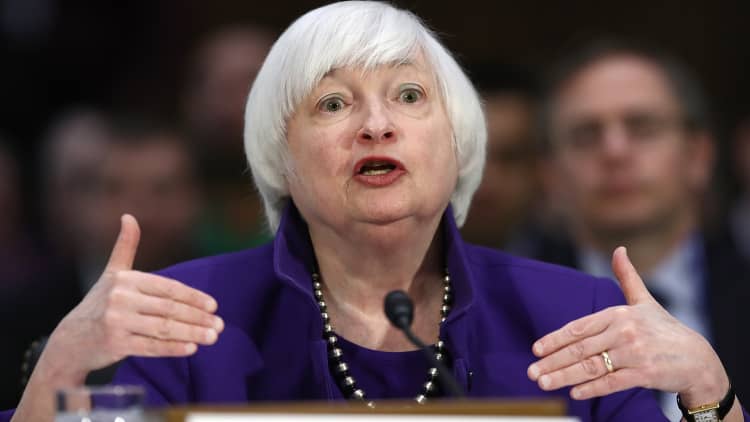
The U.S. economy is showing promising signs in the job market, inflation numbers and stock markets, all factors that could support a March rate hike by the Fed, Mark Zandi said Wednesday.
"If I were king for the day, I think I would raise rates in March," Moody's Analytics' chief economist told CNBC's "Worldwide Exchange."
"I think ... the U.S. economy is very strong. We're very close to full employment. Inflation [is] close to target. Markets are strong. [The] global economy is stable. So all the factors that go into making a decision about rate hikes seem to be suggesting a rate hike," Zandi said.
But Zandi said the Federal Open Market Committee, which determines the course of monetary policy, will likely hesitate at its March 14-15 meeting.
"[The] probability of a rate hike in March is still pretty low," he said. "Markets are discounting a 25, 30 percent probability. That sounds about right to me."
Zandi said the main point of hesitation for the Fed will stem from uncertainty surrounding the Trump administration's plans for fiscal policy.
"Are we going to get fiscal stimulus, ... finance tax cuts, deficit increases? Because that really matters for the path of future monetary policy," Zandi said. "There's just a boatload of uncertainty here, so that's complicating things."
And what President Donald Trump's White House is able to implement could weigh directly on how the Fed determines when and how it will adjust its policy, Zandi contended.
Trump and House Republicans have been considering adding a border adjustment tax to help finance his proposed tax cuts.
But Congress' bar to pass the complex tax on imports is high, and if it doesn't come through, Trump's tax-cutting plans may add to the budget deficit, which could kick the Fed into gear, Zandi said.
"If we do get tax reform, if they're able to lower marginal rates for businesses, individuals, but if that's not paid for, if it's deficit-financed, that's raw fiscal stimulus," the economist said.
"You layer that on top of a full-employment economy, that means higher inflation. That means they're going to have to raise rates more quickly," Zandi continued.


